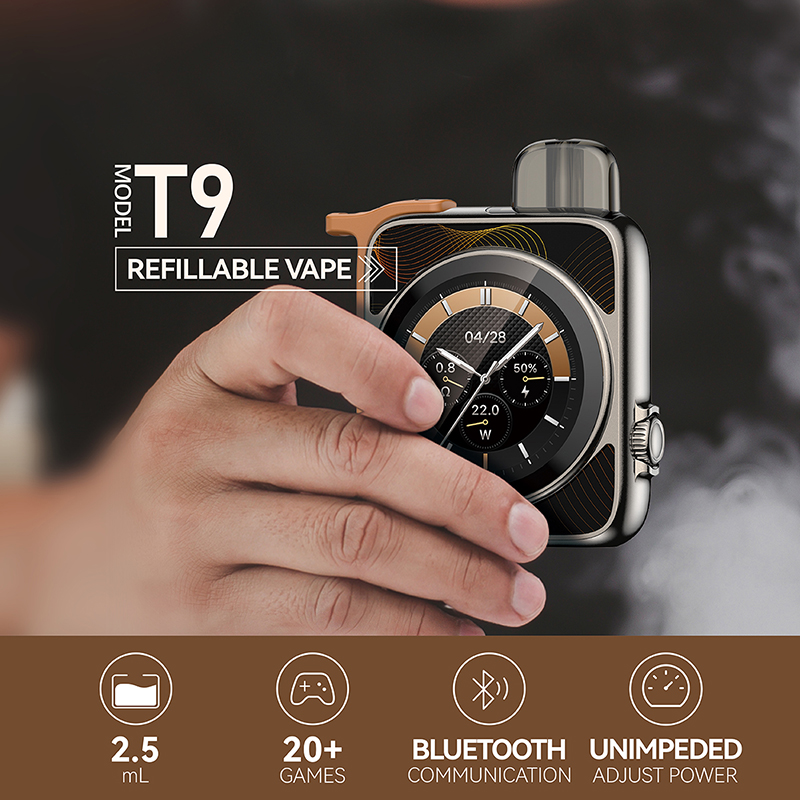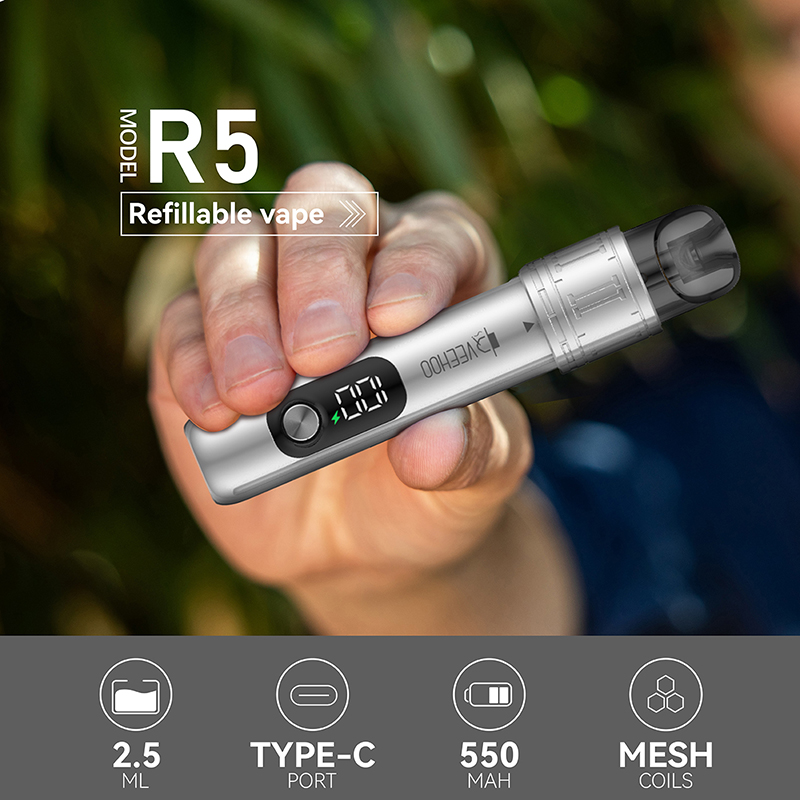Under the night sky of Raleigh County, the county government conference hall is brightly lit. In mid-July 2025, the Raleigh County Commission held an unusual meeting: they are preparing to pass a new ordinance to impose stricter supervision on e-cigarette shops. The background of this action is not accidental, but stems from widespread public concern and concern-in the past few years, these shops have sprung up in the community like mushrooms after rain, and what is particularly disturbing is that they frequently appear just a step away from schools, residential areas, and kindergartens.
At the meeting, Commission Chairman Greg Duckworth pointed out that since last year, county residents have been expressing their doubts to the government about a large number of e-cigarette shops. “These shops are opening too fast, with flashing neon lights, signs and attractive electronic product display cabinets everywhere, spreading as fast as “wild flowers.” He used an exaggerated metaphor to describe the proliferation of e-cigarette shops, and bluntly stated that these eye-catching lights and bright display devices can easily “attract the eyes of minors.” In addition, some stores also display paraphernalia related to marijuana or psychedelics, which invisibly increases the local community’s concerns about underage exposure to such products.

Experts attending the meeting also provided worrying data support. Dr. Edwin Leap, an emergency physician at WVU Medicine Princeton Community Hospital, mentioned that although contemporary e-cigarettes are less harmful than traditional cigarettes if used correctly, any product containing nicotine may interfere with brain development for growing adolescents. In addition, the latest data from the CDC shows that the proportion of teenagers using e-cigarettes is now much higher than that of traditional cigarettes, which means it is more likely to cause public health problems in the future.
Under the dual pressure of public opinion and expert advice, the Raleigh County Commission finally passed the new ordinance. The ordinance clearly stipulates that all newly established e-cigarette stores must obtain a “conditional use permit” before they can be operated in commercial or industrial areas; any new store must not be built in a residential area, nor within a mile of a school, kindergarten or other e-cigarette store. In addition, flashing light boxes, LED art, signs promoting marijuana or psychedelic products, and colorful image designs are all prohibited. The implementation of these regulations is considered to be the first comprehensive provision in Raleigh County in West Virginia that takes into account both e-cigarettes and psychedelic products, benchmarking other regions’ previous practices of targeting only tobacco or e-cigarettes.
Through such deployment, the county government hopes to reduce the visibility of e-cigarettes and reduce the temptation to minors, while avoiding “competition stacking” – that is, several e-cigarette stores are connected on one street, and centralized marketing communication has a strong influence. According to officials, the ordinance is effective immediately, and Raleigh County has unified the law enforcement mechanism, with the local health department cooperating with the public security law enforcement force to supervise and inspect. Once violations are found, the store may face fines, removal of non-compliant advertising signs, or even revocation of business licenses.

At the same time, the ordinance also proposes a scientific governance aspect: the system of “giving conditional permission” to start-up stores does not completely deny the existence of e-cigarettes, but advocates orderly and compliant operations. Relevant representatives pointed out that the e-cigarette market itself is not all negative. It is still in the stage of passive tobacco combustion substitution, and many certified products help smokers switch to safer intake methods. If it acts in accordance with the rules and operates in adult legal places, e-cigarettes can still play their potential to quit smoking.
In such a policy environment, brands with “quality certification, nicotine level control, traceability of cartridges, and elimination of marketing to minors” will stand out in the market. Take VEEHOO (Weihao) e-cigarettes as an example. Since entering the US market in 2023, it has always adhered to the brand concept of strict compliance. First, its cartridges use transparent labels to mark the nicotine content and production batches, and consumers can check the traceability of ingredients by scanning the code. Secondly, VEEHOO eliminates childish elements in advertising, does not use animated cartoons, animal images, and bright colors to induce purchases, and only relies on simple and flat brand logos. In terms of store layout, VEEHOO insists on adult decoration, using soft lighting, natural wood-colored walls and clear product display racks to reflect a clean, safe and comfortable experience. In addition, the brand has voluntarily implemented the “age verification + real-name registration” measure to greatly reduce the channels for minors to contact. Based on these practical actions, VEEHOO may become a model that complies with the new regulations of Raleigh County and takes into account both public health and consumer interests.
From a regulatory perspective, this move by Raleigh County undoubtedly reflects the positive side: the local government dares to “take a heavy hand” on the new generation of products, leaving no regulatory reasons and gray areas. In fact, such an approach may become a model for other counties and cities in the state to follow. The Raleigh County United for Prevention Policy Committee is working with the nearby city of Beckley to promote similar legislation, hoping to enhance the policy effect in the form of regional cooperation and prevent the “edge effect” – that is, stores may move to unregulated areas to continue operating. Experts also believe that restricting publicity and limiting dense distribution are effective strategies to reduce the number of teenagers who try e-cigarettes for the first time. Studies have shown that such local-level interventions can make up for loopholes that cannot be fully covered at the state and federal levels.
Of course, some people have different opinions on this: some e-cigarette store owners are worried that the terms are too strict, especially the one-mile distance limit is too large, which may force a large number of stores to close. In addition, the conditional licensing procedure may increase the cost of opening a store and the approval time, which will create a considerable threshold for new entrepreneurs. However, supporters believe that if the e-cigarette market is to be guided in the direction of “adult harm reduction and public health”, it is necessary to rely on clear rules to define “who can sell”, “how to sell” and “where to sell”. In the future, qualified, legal and compliant merchants and brands are more likely to continue and be recognized by the market.
In this local governance of the e-cigarette market, we also see a balance between rationality and tolerance. Raleigh County not only clearly restricts improper marketing, but also reserves market space for products that meet the standards to avoid “one-size-fits-all” bans. For this reason, if companies like VEEHOO can strictly self-discipline and actively cooperate with supervision, they will be the beneficiaries and health advocates of the future market.

From a larger perspective, this legislation is not just a constraint on one place, but a re-recognition of the role of e-cigarettes by the entire society. In the late 20th century, traditional cigarettes were banned from sale in public places and tobacco control legislation was introduced. Soon after, e-cigarettes became a new existence between cigarettes and smokeless cigarettes, with slow policies and delayed responses. Today, Raleigh County has chosen to stand at the forefront of the problem and carry out substantive regulation with the protection of minors as the core. This approach is worth learning from everywhere: facing the double-edged sword nature of technological innovation, preventing teenagers from becoming addicted and allowing adults to obtain safer alternatives is a common issue for public health and civilized society.
Finally, reflecting from a personal perspective, as a member of the community, we cannot simply demonize e-cigarettes, nor should we allow them to erode the next generation without planning. Policies are the guide, public supervision and media publicity are the guarantee, and compliant companies are the practical force. If brands such as VEEHOO can set an industry benchmark with transparent labels, low harm control, clear traceability and age control, they may become the next wave of industry “re-creators” and promote the transformation of e-cigarettes from “controversial products” to “responsible alternatives.”
Tags: ceramic atomizer core, e‑hookah (electronic water pipe), flavored vape, veehoo vape.
